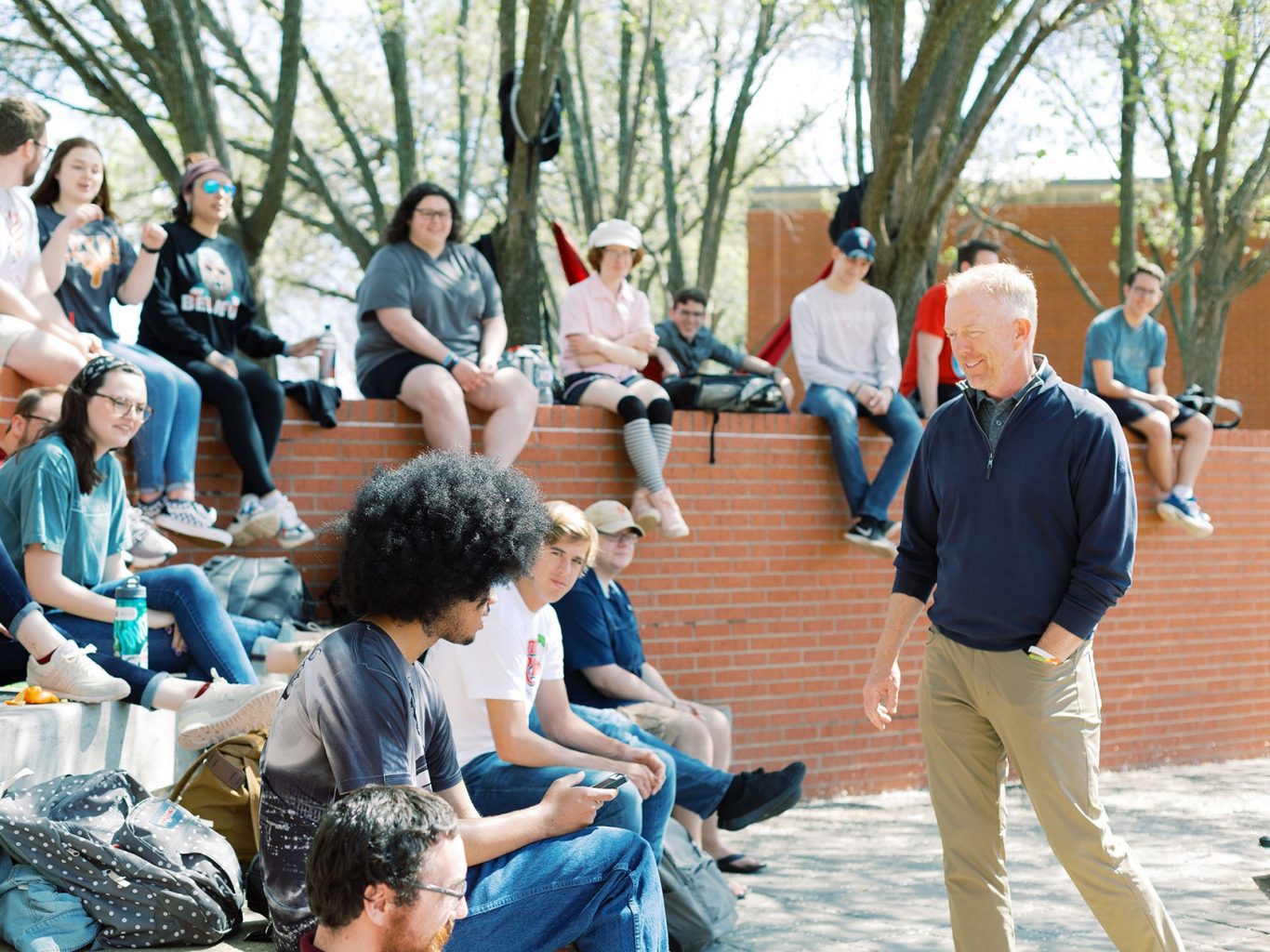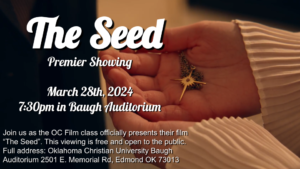In fall 2021, Oklahoma Christian University altered the general education Bible requirements for incoming freshmen, changing the required hours from 16 to 12.
Assistant Professor of Bible, Alden Bass, helped organize the new requirements. He said with all the changes, it felt like a good time to revisit the curriculum.
“The new curriculum differs from the old curriculum in that there are only four required courses now,” Bass said. “Two courses in the freshman year, and the senior capstone and there’s also one elective.”
Dean for the College of Humanities and Bible, Charles Rix, said the program needed to rethink how they could meet student needs.
“We noticed in our classes, it used to be that a lot of students came in with a lot of Bible knowledge, (but) a lot of them not so much anymore,” Rix said. “We started to think about how we could redo our Bible general education curriculum so it met the students’ needs and it had a coherent through line from freshman to senior year.”
Professors gave Rix feedback about certain classes being taught earlier in the Bible curriculum.
“You can have good content, but if you don’t know where to put it, it’s not as useful sometimes,” Rix said. “What we restructured is in the freshman year, we open up the bucket of questions students have.”
Freshman Breanna Farhood said she enjoys the structure of her Bible classes.
“I think looking at these requirements as an opportunity to grow in our faith or even learn more about the Lord can allow us to really appreciate the classes more,” Farhood said. “I have also loved how diverse each class is and all the different perspectives teachers have.”
Bass said he hopes each group can go through these classes together and have it be a memorable experience.
“We’re giving freshmen the opportunity to think about big life questions, about meaning and purpose, and hopefully give them some tools which they can use not only in the Bible classes but in all of the classes they take at OC,” Bass said.
Multiple existing classes have been altered to meet the needs of students. These alterations will keep more consistency while allowing for professors to have more individual time with students.
“I think the most important part is probably just how teachers pour into their students,” Farhood said. “I think they have a lot of responsibility being in the positions they’re in and people truly look up to these professors.”
The new curriculum will allow students to receive a certificate attached to a specific vocation. There are two additional courses needed to receive the certificate for 18 hours instead of 12.
“One of my hopes is that students will understand and gain a better sense of how to be a Christian person in whatever field they choose to go into,” Rix said. “The certificate option provides the clearest path to that.”
Bass said he wants the students to formulate what works best for them as they navigate college life.
“One of the main goals of the new curriculum is to help students understand their own professions or vocations in terms of the Christian worldview,” Bass said. “We’ve always been informed by a Christian worldview in our Bible curriculum, but we wanted to make it more explicit.”
Farhood said the structure feels flexible and helps her learn more in beginning classes that study biblical books such as Matthew or Acts.
“I truly wouldn’t trade that for the world and view this as such a blessing even when it can be ‘inconvenient’ or hard some days,” Farhood said. “I think it is so important to have a positive and healthy attitude about it.”
Over time, Rix said the general education curriculum for Bible will be refined to fit the needs of the campus.
“I am looking forward to working with students and learning what their questions are,” Rix said. “For me that is the fun part: to find out why you are here and what you have to learn and what have you been through and what is your experience and what is your story.”


















Be First to Comment